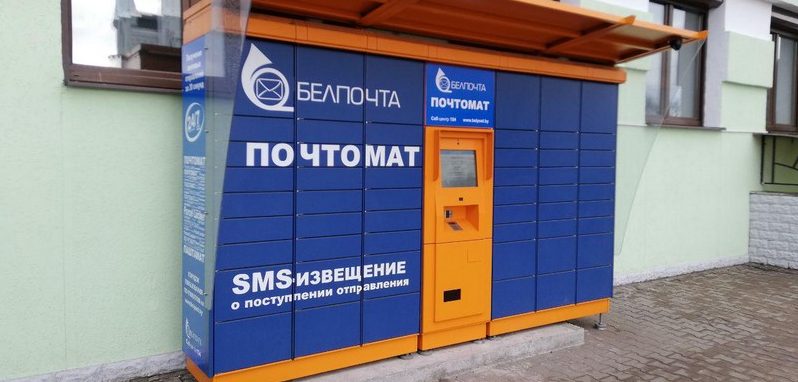E-commerce is taking off in Belarus, and parcel lockers and PUDOs are set to grow. Andrei Shaurko and Marek Różycki reveal the forces behind out-of-home delivery in the Eastern European country
In Belarus, online trading represents about 5% of total retail sales. In 2020, local online shops experienced an incredible 40% growth compared with 2019 thanks to stay-home buying caused by Covid-19.
The pandemic has accelerated e-commerce’s upward trend, which already had a CAGR of 20-30%. In fact, in five years, the Belarusian online market is predicted to double and reach some 10% of total trade. The key players are marketplaces such as Onliner and Deal.by, as well as stores such as 21vek, E-dostavka, Wildberries, Lamoda and OMA.
Couriers and postal services are the most common delivery options for online orders. Couriers deliver 52% of orders, postal services 33% and self-pickup makes up the rest (15%) (click here for more). This share differs depending on an e-shop’s specifics: fashion retailers sell more via PUDO points because of the need to try on items and relatively high levels of returns, whereas electronic (or larger) items tend to be delivered to the home.
The courier delivery market is considered to be low-margin and highly competitive in Belarus. There are 44 carriers in total, with 15 of them focusing on domestic shipments. Moreover, major players such as 21vek, Lamoda and E-dostavka prefer to keep their delivery in-house. It is very common that several vans from various retailers travel half-empty through Belarus every day, instead of just a few fully loaded ones with consolidated deliveries.
Retailers are now going a step further and are seeking to develop their own last-mile competency, using their volumes as the springboard for more development. Examples include Europost (online grocery store E-dostavka), Dostavych (online store 24shop.by), Logiston (delivery of Smarton stationery) and Roscherk (distribution of printed materials).
Why is out-of-home (PUDO and parcel lockers) needed?
The fast-growing number of online orders requires more infrastructure and especially capacity in logistics. Couriers already face three to five times higher loads due to the pandemic in 2020, and buyers are asking marketplaces to offer PUDO points for more flexibility to consignees.
This pushed Onliner – the biggest local marketplace in Belarus – to map all its available 750 PUDO points during summer 2020. These PUDO points are located in shops that sell on Onliner, and they will be opened up to all merchants selling on Onliner.
It might sound strange, but there is no real PUDO network in place in Belarus. If we take all 20,000 online stores, there are only about 1,000 pickup points in the whole country. Moreover, as of today, only about 1% of them are available for e-retailers because they are operated by CEP players such as DPD, Belpost and Europost.
The first mover in parcel lockers was Belpost (the incumbent national postal operator), with 20 parcel lockers in 2018, and it has reported plans to expand the network if this delivery method is well received by clients.
The second player to launch parcel lockers was DPD in 2019 with 10 parcel lockers. The lockers can be used only for pickup and do not allow on-site payment.

Finally, in 2020 the fashion retailer Lamoda launched its own parcel locker network. It had had positive experience with third-party lockers in Russia but found there wasn’t enough infrastructure in Belarus, so it took charge of it itself in partnership with software company VSGate. Having tested three lockers in Minsk, Lamoda is waiting for 10 new machines early this year to be installed in other regions of Belarus. At full scale, the network will be bigger than DPD and Belpost put together. This is still a ‘mini-chain’ for now, compared with neighboring countries Russia, Poland and Ukraine, which have 15,000, 13,000 and 5,000 lockers respectively.
Almost all the top 10 e-retailers have considered using parcel lockers before and postponed it until the ‘right moment’. At least two of them are planning to build their own chains of several hundred lockers within a year or two if there is no independent network to join. The minimum viable network for Belarus, according to Last Mile Experts, would be at least 1,000 machines, and none of the present networks are anywhere close to this.
Belarusians are still unfamiliar with lockers. But after a number of positive developments last year the future looks promising.
Meanwhile, postal services move delivery forward through PUDO points: Belpost offers its 2,000 postal offices, and DPD and Europost each have about 100 pickup points. As mentioned above, Onliner wants to unite its merchants’ 750 pickup points and open them for partner pickups.
With a little luck, Belarusian online shoppers will enjoy more flexibility in shipping thanks to a network of PUDO points and parcel lockers.
What do we expect to happen and who will be the winners and losers?
We have to expect consolidation and the digitization of shipping solutions. E-commerce is driving the domestic parcel delivery market forward, and fast. Shipping companies have to get digital and be easy to integrate into online shopping workflows. The ‘old-school’ post services offering little else than drivers will definitely lose.
The first e-commerce dedicated carrier-agnostic parcel locker/PUDO solution with strong, customer-centric interactive delivery management solutions will be a great success and give Belarusian customers the sort of service they deserve.
Author bios
 Andrei Shaurko is the co-founder of VSGate, specializing in software and hardware solutions for last mile logistics
Andrei Shaurko is the co-founder of VSGate, specializing in software and hardware solutions for last mile logistics



